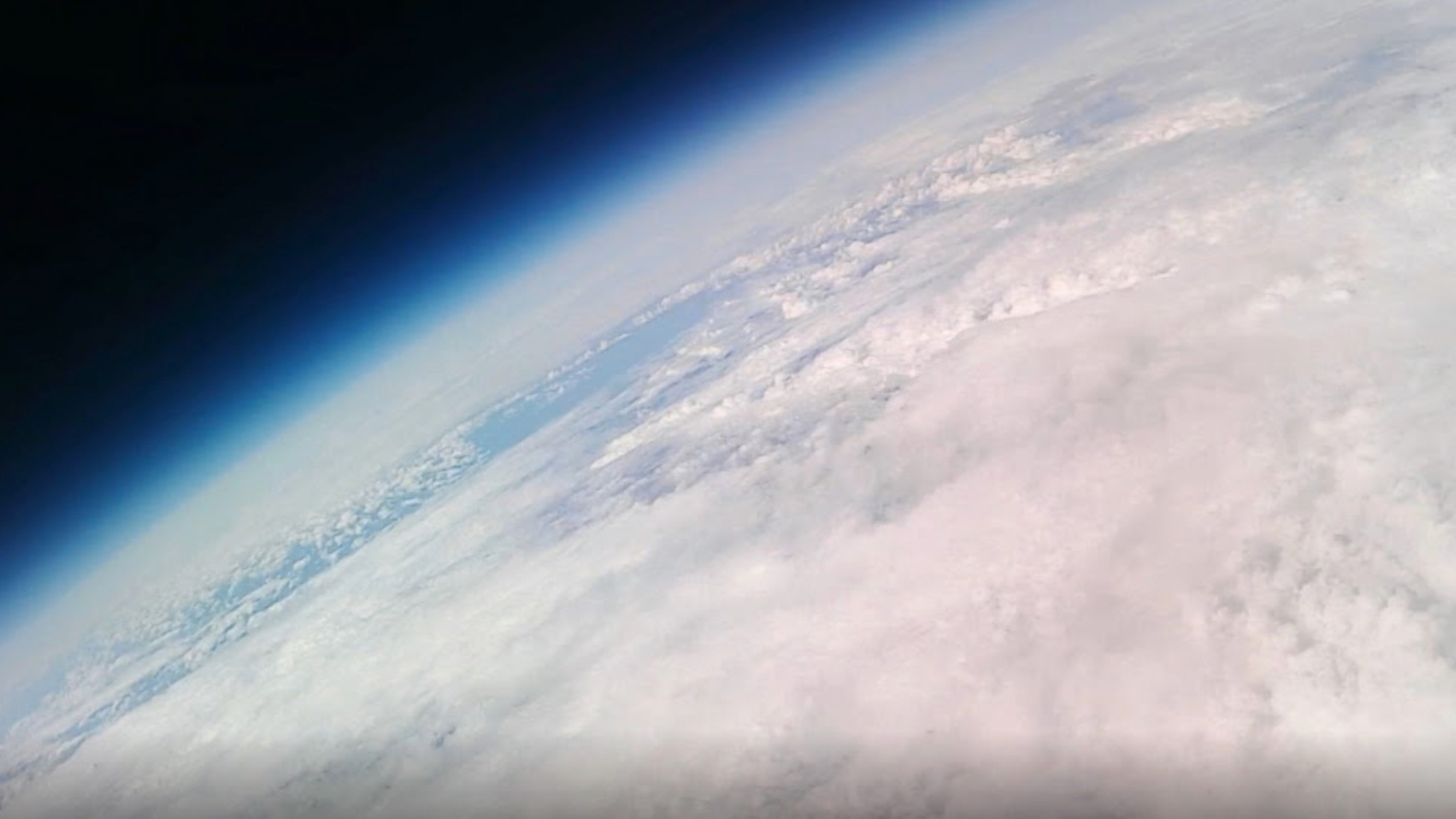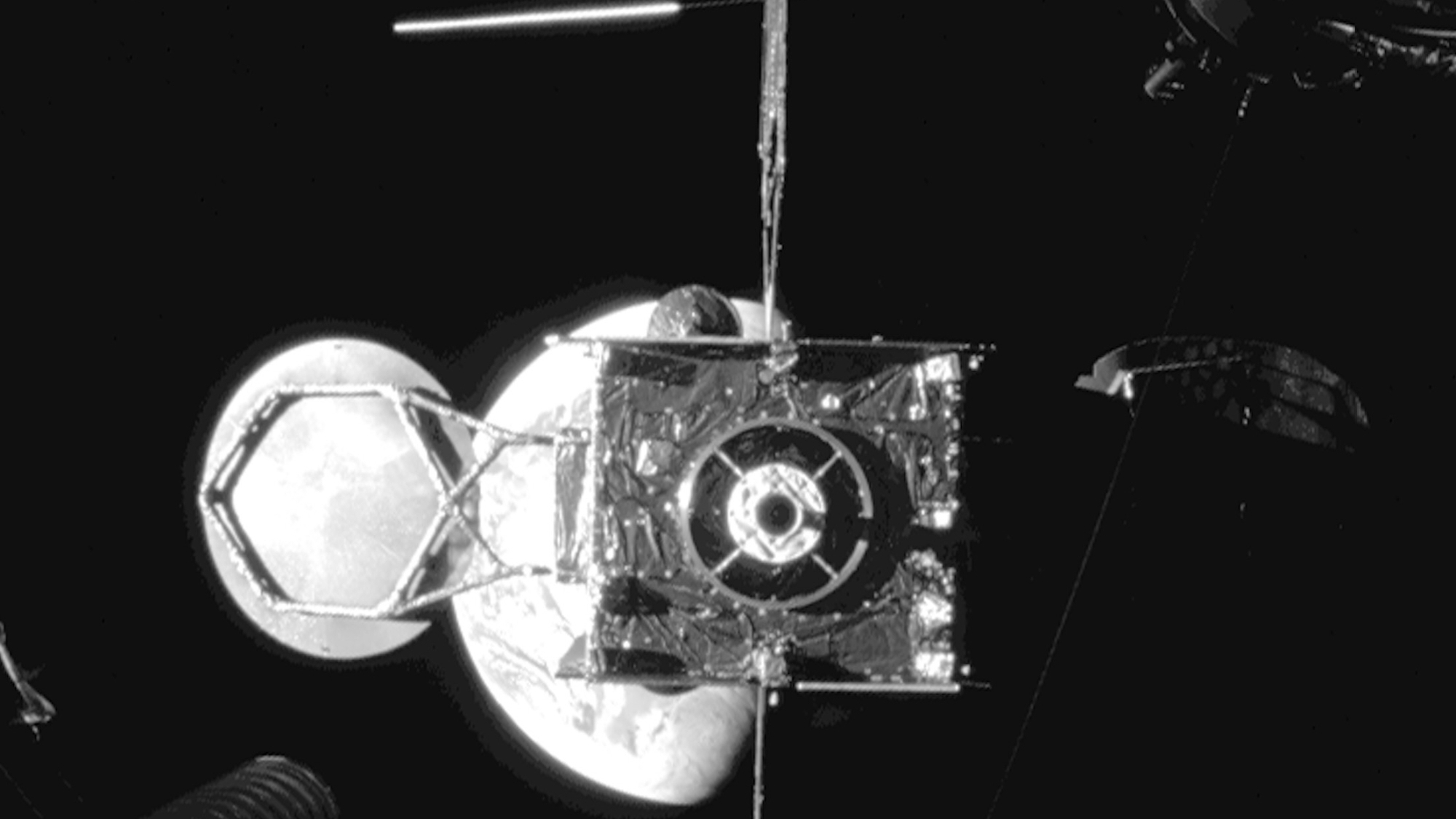High school students set record with stratospheric balloon launch and recovery (photo)
The Astrogazers Club at the Croydon High School for Girls pulled off the feat just months after a major setback.

A team from the Astrogazers Club at the Croydon High School for Girls became the first U.K. school group to successfully launch and recover two weather balloons that reached high into Earth's atmosphere, a major achievement for STEM (science, technology, engineering and math) students in the country.
The Astrogazers Club, which included students aged 10 to 16, launched the two weather balloons from the campus of the University of Bath last month. It was their second try: The group's first attempt in late June encountered a technical failure, when high winds tore through ropes on the balloon.
Undeterred, the club's members worked over their summer break to prepare for the latest attempt, which saw the balloons rise to just above 22 miles (32 km), well into the stratosphere. The balloons were equipped with sensors to record atmospheric data as well as a camera, which took a stunning photo of Earth from that lofty perch.
Related: Earth's atmosphere: Facts about our planet's protective blanket
The two balloons — named for astrophysicist and former University of Bath Dean of Science Jocelyn Bell-Burnell and the U.K.'s first astronaut, Helen Sharman — flew for more than two hours before making touchdowns as planned in South Oxfordshire.
The entire mission, dubbed "Mission Aspiration" by the club, was planned and carried out throughout by the students, with assistance where necessary from the club's advisor, Arabi Karteepan, the Croydon High School for Girls' Head of Physics, as well as University of Bath professor Cathryn Mitchell and Robert Watson, who helped with regulatory coordination with the U.K.'s Civil Aviation Authority.
"I am absolutely delighted that Astrogazers has become the first girls' school STEM club to achieve two successful weather balloon launches to reach the edge of space," Karteepan said in an emailed statement to Space.com. "They were so happy to see their hard work pay off, and it's especially pleasing that passion for physics and science is higher than ever and the club is now expanding with new members expressing interest in STEM subjects."
Get the Space.com Newsletter
Breaking space news, the latest updates on rocket launches, skywatching events and more!
As for what's next for the Astrogazer's Club, it has already finished a follow-up project called Mission Ivy Satellite, in which the girls created a DIY satellite ground station for weather satellite imagery. Future plans include Mission Innovation, a model rocket launch, and Mission Pegasus, in which the club will attempt to deploy a satellite into low Earth orbit.
"The effect of the successful launches has rippled through the school community and the Girls' Day School Trust — the response has been nothing short of amazing," Karteepan said. "It is fantastic that Astrogazers is now oversubscribed, with a growing waiting list."
Join our Space Forums to keep talking space on the latest missions, night sky and more! And if you have a news tip, correction or comment, let us know at: community@space.com.
John is a science and technology journalist and Space.com contributor. He received his B.A. in English and his M.A. in Computer Science from the City University of New York, Brooklyn College, and has bylines with TechRadar, Live Science, GamesRadar, and other publications. You can find him on Bluesky at @johnloeffler.bsky.social or seeking out dark sky country for spectacular views of the cosmos.
-
ARTGLICK Correction.Reply
I had to wonder looking at the headline photo. It surely doesn't look like that from the window of an airliner, which can fly even higher than 32,000 feet. And that height certainly wouldn't be "record breaking" for a school balloon project.
Other sources are reporting that the balloons reached a height 32,000 meters, which is about 104k feet.
Oops. Didn't NASA lose a Mars probe once because someone confounded their metric and English measurements?









